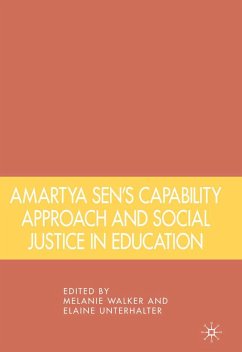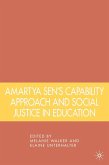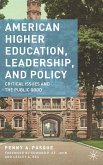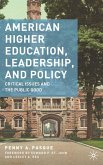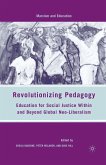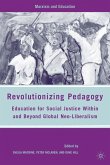This compelling book introduces Nobel laureate, Amartya Sen's, capability approach, and explores its significance for theory, policy and practice in education. The capability approach has attracted attention across disciplinary boundaries in recent years contributing to debates in economics, political philosophy, health and social policy. This book complements these discussions by considering the potential of the approach for work in education, showing how the capability approach challenges some of the key assumptions of human capital theory and how it can provide substance for policy and practice in education concerned with social justice. The book looks particularly at questions concerning the education of children, gender equality, and higher education.Contributors hail from the UK, USA, Australia, Italy and Mexico.
'Walker and Unterhalter have gathered together an impressive collection which debunks the notion that capabilities can be equated to a narrow definition of outcomes, qualities or competencies. This book offers exciting new possibilities for developing socially just approaches to education with our students.' - Pat Thomson, Professor of Education and Director of Research, School of Education, University of Nottingham, UK
'Amartya Sen's economic and political theory including, centrally, his work on the idea of human 'capability' as both a goal of and an indicator of development has had a major impact on both the theory and practice of international development and won him, among many honours, the Nobel Prize for Economics. It is a body of work which clearly invites application in the context of education, but this application has hitherto been neglected. Melanie Walker and Elaine Unterhalter have assembled an important, stimulating and perceptive collection of papers which clarify and explore both the theoretical framework of the capability approach and its practical application. This book deserves the attention of all those involved in considering the purposes of education and the measures of its success in any educational setting and will challenge those who measure this success in narrowly instrumental terms.' - David Bridges, Professorial Fellow, University of East Anglia, UK; Chair of the Von Hügel Institute, St Edmund's College, UK
'Amartya Sen's economic and political theory including, centrally, his work on the idea of human 'capability' as both a goal of and an indicator of development has had a major impact on both the theory and practice of international development and won him, among many honours, the Nobel Prize for Economics. It is a body of work which clearly invites application in the context of education, but this application has hitherto been neglected. Melanie Walker and Elaine Unterhalter have assembled an important, stimulating and perceptive collection of papers which clarify and explore both the theoretical framework of the capability approach and its practical application. This book deserves the attention of all those involved in considering the purposes of education and the measures of its success in any educational setting and will challenge those who measure this success in narrowly instrumental terms.' - David Bridges, Professorial Fellow, University of East Anglia, UK; Chair of the Von Hügel Institute, St Edmund's College, UK

